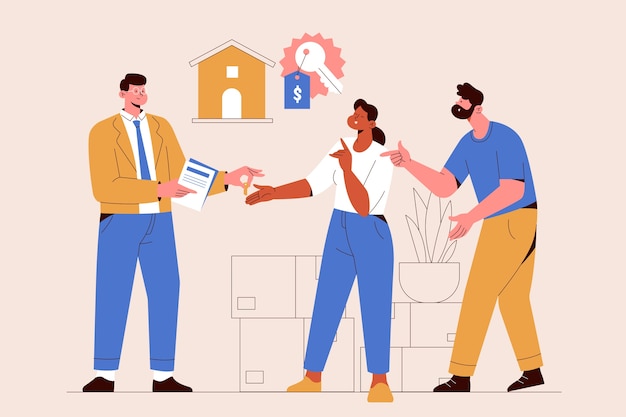
Living beyond your financial means could result in severe monetary problems, such as becoming “house poor.” This is a scenario where your housing costs significantly eat into your income, leaving you with limited resources to handle all your other monthly expenses. As a general guideline, the total cost of your housing should not exceed 30% of your net income, including rent or mortgage, and utilities. A classic case of being house poor is when a family purchases a large 4-bedroom house and then struggles to pay their monthly credit card bills. It’s an unpleasant predicament that should be avoided so your housing expenses don’t consume most of your income. You don’t want to be pushed into working more, nor do you want to spend less time at home, just to afford it. Here are some strategies to avoid becoming house poor, with some ideas contributed by our friends from Guitarable.com.
1. REMAIN A RENTER FOR NOW
Owning and maintaining a home is costly. If you’re not ready to buy or the local housing market is unfavorable, stick with renting. My husband and I currently enjoy affordable rent with our comfortable apartment. I only pay $430 a month as my share of the rent. Although there are some hidden costs of renting, we manage to keep our expenses low. We haven’t even started saving for a down payment yet and if we bought a house now, our housing costs would inevitably rise. Adding maintenance and repair costs doesn’t lure me towards home ownership either. So, for the time being, renting seems like the economical choice and prevents house poverty. If your rent is manageable, save any spare money to prepare for any future increase in housing expenses.
2. STRIVE TO MAKE A 20% DOWN PAYMENT ON YOUR HOUSE
When you decide to buy a house, try to pay at least 20% of the price upfront as a down payment. This can help avoid private mortgage insurance (PMI), build your equity in the house earlier, and potentially lower your monthly mortgage payment. Waiting to save for a 20% down payment requires patience. Purchasing a home shouldn’t be rushed, and whether you opt for a 15-year or 30-year mortgage, you need to be comfortable with the payments. If required, you can consider working extra or obtaining a second job to expedite the saving process.
3. DETERMINE YOUR BORROWING LIMIT
Being house poor often results from over-borrowing for a home that burdens your budget. Lenders will typically appraise your income and debt to calculate your borrowing limit. However, you also need to figure out what you can truly afford beyond the lender’s approval. Take into account all your expenses and financial commitments. If the mortgage payment seems challenging with your current income, search for a more affordable home. No home, no matter how beautiful, is worth the stress of payments or the risk of loss due to affordability problems.
4. PAY OFF YOUR DEBTS SOONER RATHER THAN LATER
Whether you’re renting or buying, strive to make overpayments on your debt to eradicate it as soon as possible. Thinking about what you could do with the money allocated for debt payments can be a motivational factor. If you can free yourself from any debt, you might manage slightly higher housing costs without feeling stressed. My husband and I aim to discharge a significant portion of our debt before purchasing a home, which will help reduce our debt-to-income ratio. Lenders might not grant you a home loan if your debt-to-income ratio is too high.
5. DECREASE YOUR EXPENSES AND INCREASE YOUR REVENUE
If you’re already bound by a mortgage or a lease and are feeling the pinch, there are still remedies. Start by scrutinizing your budget and identifying needless expenses. You might trim costs that are non-essential or you can live without. Some people sacrifice non-essential wants to afford a better house. If you value a certain home over other expenses, then this trade-off might suit you. It’s also possible that your level of income, rather than your choice of home, is making you house poor. If you live in a middling town but are still unable to make ends meet, you might need to increase your income.
Remember, don’t succumb to lifestyle inflation or resign yourself to being house poor. Your housing expenditure should not be the lion’s share of your budget. Strive to achieve balance among your income, commitments, and other financial responsibilities.


